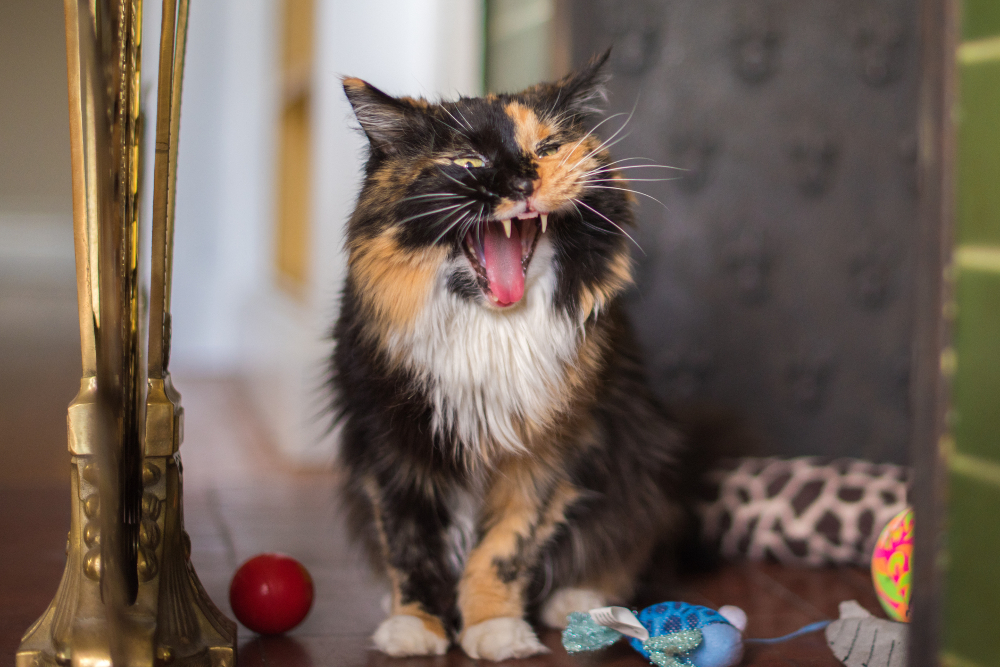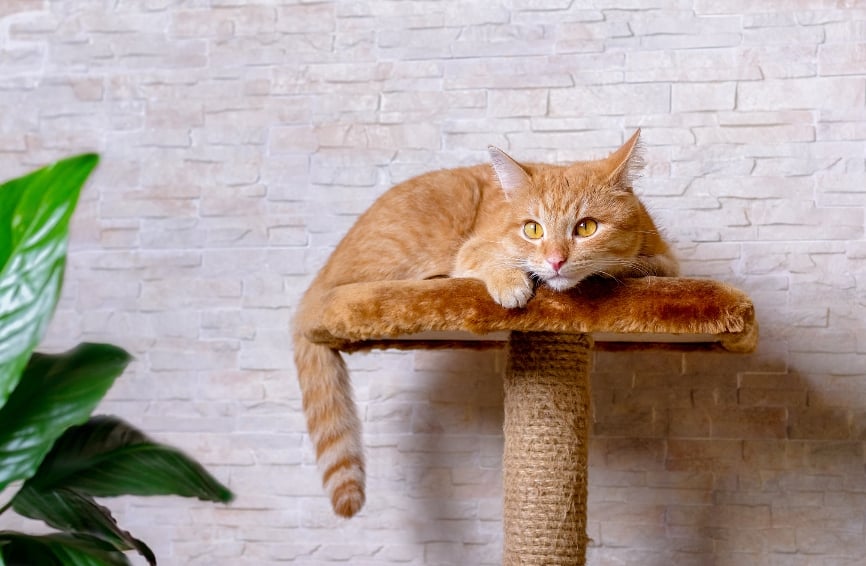Table of Contents
Key Takeaways
- Caterwauling is how a cat yells to complain or get your attention, or they may do it when they are bored or seeking a mate.
- Cats may caterwaul when they become anxious about outside activity.
- Insecurity, vulnerability, and pain can cause a cat to caterwaul.
- Feline cognitive dysfunction is a possible cause among older cats due to disorientation.
It’s the middle of the night and your cat wakes you up with a loud, long yowling cry. Perturbed, you might get up to see what the problem is, or you’ll resort to burying your head under a pillow. What is this noise and how do you stop it? Far from the pleasant sound of short and sweet meows, caterwauling is your cat’s way of yelling to get your attention, protest or complain. There are a number of reasons your cat may make this sound, and getting her to stop involves dealing with the root of the cause.
What is caterwauling?
Unlike your kitty’s other vocal sounds like meows and chirps, which tend to be much more tolerable, caterwauling is a harsh sound cats make that is somewhere between a howl, a yowl, and a whine. Also unlike meow sounds, which can be casual, cats will caterwaul with intent.
Why do cats caterwaul?
Trying to get your attention
In some cases, caterwauling occurs simply because your cat wants your attention. If you frequently react to caterwauling with food or treats, then your cat has learned to make this sound whenever she wants an edible reward. Cats need regular stimulation and exercise, so to prevent caterwauling out of boredom, play with your cat to make sure she’s good and tired before bedtime. For cats that have developed the habit of wailing in the middle of the night, it’s best to discourage this behavior by ignoring them, even if it means using earplugs.
Seeking a mate
Caterwauling can be heard from intact females when they are in heat as a call to male suitors. Males will also make this sound when they know a nearby female is in heat. Prevent caterwauling and the overpopulation of cats by spaying and neutering your cats.
Anxious about outside activity
While watching out the window, your cat may see a stray or neighbor cat approach her “territory” which will cause caterwauling. You can remedy her anxiety by closing the blinds or walking your cat outside on a leash to allow her to relieve the urge to mark her territory.
Insecurity or vulnerability
Cats will caterwaul when they are unhappy or feel out of sorts. If your cat is particularly clingy, she might express vocalization when you leave her home alone or even go into a different room. Cats might also react to a recent move or strangers visiting your home.
Pain
If you can’t find any immediate reasons (like the ones mentioned above) that your cat is caterwauling, then it may be due to pain or injury. Caterwauling is also a symptom of certain health conditions like kidney disease and overactive thyroid. If you suspect a health concern, be sure to seek veterinary care to get your kitty checked out.
Feline cognitive dysfunction (FCD)
Characterized by feeling confused or disoriented, FCD is an age-related health condition similar to Alzheimer’s or dementia that affects senior cats. Battling this confusing condition can cause your cat to caterwaul. If you suspect FCD, take your cat to see the vet.
How to stop a caterwauling cat
Caterwauling is loud and obnoxious for a reason: your cat needs something. Help your cat and save your sanity by determining the cause and offering your cat the reprieve they need, whether that’s affection, a trip to the vet, being spayed or neutered, or training them out of a bad habit. Here are a few tips that may help reduce caterwauling:
- Keep meal times to a schedule so your cat knows when to expect food and prevent them from thinking they are starving.
- Make sure their litter box is cleaned regularly.
- Engage your cat with a good play session 30 minutes before your bedtime to help them alleviate their hunting desires and release extra energy.
- Consult your veterinarian if you can’t seem to determine the reason for caterwauling.








